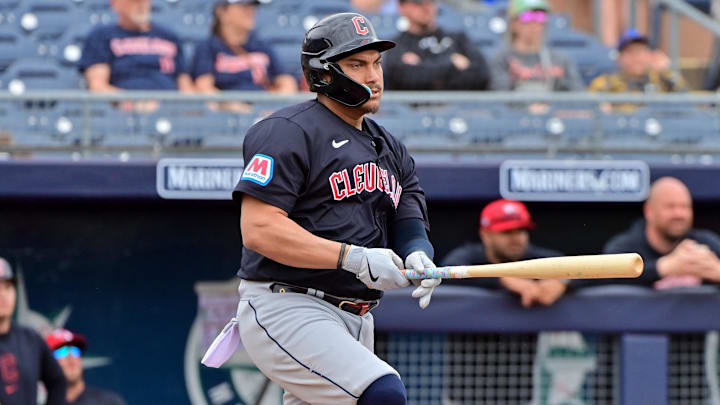Here's a question I would love to ask Cleveland Guardians President Chris Antonetti: Within two years, Tristan McKenzie, Steven Kwan, and Josh Naylor will all be earning between $10 and 20 million dollars a year, either through arbitration or free agency -- is there any chance they will be playing in Cleveland when that happens?
To be honest, those three should be among the easier extensions for the Guardians to negotiate. McKenzie has been injured enough that he could be willing to sacrifice a few dollars for an extra year or two of security. Naylor has an opportunity to play with his brother. Kwan doesn't fit the profile of the type of player who strikes it big in arbitration or free agency, with his lack of power.
But if those three were signed to extensions that netted them, say, $10 million in 2025, the team payroll would instantly increase by about 20 percent. This from a team that DFAed Cal Quantrill because they couldn't stomach paying him $6 million this season.
Like it or not, unless his market is artificially repressed by how the collective bargaining agreement deals with service time, the going rate for a major league regular in his prime who has a positive impact on his team's success is between $10-15 million dollars per season. For a player who is pivotal to his team, as Naylor seems to be trending toward, negotiations will likely start at $20 million.
It's a similar story with pitchers. Lucas Giolito, who barely looked like a major league pitcher for most of 2023, signed a 2-year deal with the Red Sox that averages $19 million per season. The only way Shane Bieber and Tristan McKenzie won't be making more than that in a couple of years is if they suck worse than Giolito or they get hurt.
It's not fun to be a fan when any success a player has comes with the downside of raising his price to the extent that your team can't afford him. But that's where we are.
It goes on from there. We can already see the time when Gavin Williams, Tanner Bibee, and Logan Allen will be eligible for arbitration and earning salaries that mark them as trade bait. Bo Naylor, too.
Sure, there will be a handful of prospects waiting in the wings to take over for them, because there always is in Cleveland. But if every prospect who arrives in Cleveland comes with an expiration date only four or five years in the future, how likely is it that the Guardians can develop an entire team of those guys at the same time, good enough to make a deep playoff run.
Think back to 2016, the start of the last great run for this franchise. Francisco Lindor and Jose Ramirez were just blossoming into franchise players, but the core of that team was a group of veterans: Carlos Santana, Jason Kipnis, Michael Brantley, and Yan Gomes, plus pitchers Corey Kluber and Carlos Carrasco, who had been signed to extensions that secured their services through their prime years at affordable costs.
Not all those guys were stars, but they provided stability and minimized the number of holes that the front office had to worry about.
Will this front office do the same? They will tell you that they already have, with Ramirez and Andres Gimenez already signed to long-term deals, along with Myles Straw and Emmanuel Clase.
They will also tell you that the budget is constrained by the uncertainty over TV rights. We can assume they are negotiating with guys like Kwan and Naylor, but unless ownership is willing to commit to a payroll above $100 million at some point in the next couple of years, those negotiations are likely futile.
It seems an apt time to point out that the Guardians drew more fans per game than Detroit, Chicago, and Kansas City, and were within a thousand fans per game of the division champion Twins. Yet those four teams are projected to average $110 million in payroll this season, compared with Cleveland's $84 million.
It also behooves us to remember that the Guardians now have the capital infusion of a minority owner in David Blitzer, and that losing the previous minority was part of the reason for the huge cut in payroll that occurred after John Sherman left to become majority owner of the Royals in 2019.
One more thing: Cleveland's farm system, which has been the source of all the cheap young talent that has kept the team in contention the past few years, is now ranked 19th by MLB.com and 22nd by Keith Law. That farm system has kept the team in contention as the payroll has been cut over the past five years, so it is understandable if the supply of prospects has been depleted.
Still, that does mean that if the current core players are not retained, the odds of replacing them through the farm system are less than they have been.
In other Guardians news:
